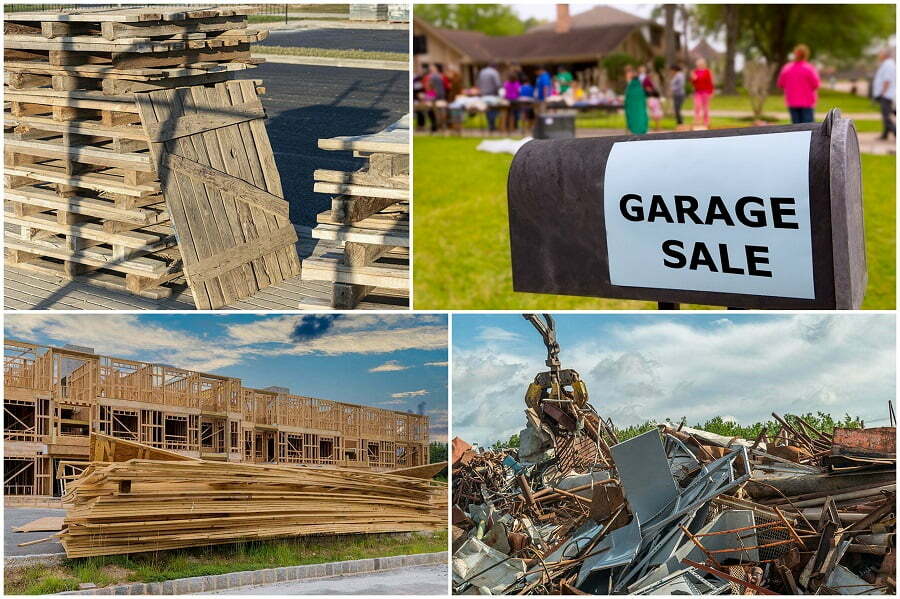Last updated on
Discover the environmental and practical steps to responsibly dispose of an old coffee maker.
Key takeaways:
- Assess the condition: Donate or sell if functional.
- Donate or return to the store for recycling.
- Use manufacturer’s recycling program.
- Check local recycling centers.
- Proper disposal benefits the environment, reduces waste, and conserves resources.
Assessing the Condition of Your Old Coffee Maker
Before deciding on the disposal route for your appliance, a quick evaluation of its condition is essential. If the machine is still functional or requires minor repairs, consider extending its life by donating or selling. Charities and thrift shops often welcome working appliances. Alternatively, if your social network includes students or others who could benefit from a free coffee machine, gifting it might be the perfect option.
However, if your trusty brewer has reached the end of its functional life or repair costs outweigh its value, recycling becomes the responsible choice. Broken machines contain valuable materials like plastic, metal, and sometimes even small amounts of precious metals which can be recovered and repurposed. Keep in mind that simply tossing it in the trash contributes to landfill waste and squanders resources that could be reused.
Donate It or Return Coffee Maker to the Store Where You Bought It
If your coffee maker still works and is in good condition, consider giving it a second life through donation. Thrift stores, shelters, and community centers often welcome functional appliances to support those in need.
Moreover, some retail stores offer take-back programs, allowing you to return your used coffee maker for recycling or a potential store discount on a future purchase.
Before donation or return, clean the appliance thoroughly to make it as presentable as possible and ensure it includes all necessary components. This act not only extends the lifecycle of your coffee maker but also supports the circular economy, reducing waste and helping others in the process.
Most Manufacturers Offer a Recycling Program
Many major appliance manufacturers are conscious of their environmental responsibilities, often providing take-back programs. These initiatives allow you to return your old coffee maker directly to them for responsible recycling. This is beneficial because they have the resources to properly disassemble the machines and recycle the various components, from metal and plastic to electronic parts, in an eco-friendly manner. Additionally, some companies may refurbish suitable models for resale, further reducing waste.
Taking advantage of these programs typically involves a simple process:
- Check the manufacturer’s website or contact customer service to find details about their recycling program.
- Follow the instructions provided, which may include filling out a form or printing a free shipping label.
- Package your old coffee maker accordingly, often using the original box or any sturdy box.
- Ship the item back or drop it off at a designated facility, depending on the company’s procedure.
By leveraging a manufacturer’s recycling program, you not only ensure your appliance is handled correctly but also support the efforts to curb electronic waste. Remember that participating in such schemes directly contributes to a circular economy, where products and materials are recycled and reused rather than discarded.
Recycling Centers That Accept Coffee Makers
When it’s time to part with your old coffee maker, recycling centers are well-equipped to handle the task. These facilities dismantle the appliance and responsibly sort its components for recovery. Metals, plastics, and sometimes glass or electronic parts can find new life after processing.
However, it’s essential to check with your local recycling center first, as rules can vary. A quick call or a visit to their website will clarify whether they accept small appliances and if any preparation is needed, like removing the coffee pot or cord. Some centers also host electronic waste collection events, offering a convenient drop-off point for your old machines.
Remember, by taking your coffee maker to a recycling center, you’re contributing to the reduction of waste and promoting the reuse of valuable resources.
Environmental Impact of Proper Disposal
The environmental benefits of adequately disposing of old coffee makers are significant. These appliances often contain a mix of plastics and metals that, if tossed into a landfill, could take hundreds of years to decompose, releasing harmful chemicals into the soil and groundwater.
By recycling, the raw materials are reclaimed, conserving energy and resources that would otherwise be used to produce new products. Moreover, reducing e-waste helps prevent dangerous toxins like lead and mercury from polluting our ecosystem.
It’s a simple act with profound ripple effects: less pollution, lower demand for virgin resources, and a smaller carbon footprint.
Related reading:
Table of Contents

